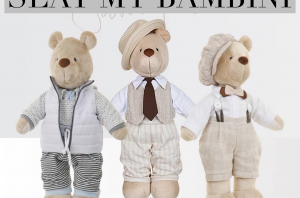
“Why can’t you just leave me alone!” my son finally shouted. “I’m not leaving,” I said, trying to keep my voice even. “I asked you to put away your clothes before dinner, and you haven’t.” I knew he’d had a stressful day, but still. Laundry. Easy request. “No!” he roared. “Just go away!” He stared at me with red-rimmed eyes and twitching with anger as I tried to control my own rising temper. He’d lost his cool with me, and it seemed with adolescence in full swing, it wasn’t going to be the last time either. What could I do?
Whether he’s two or 20, knowing what to do when your child yells at you can be hard. You don’t want to make things worse, but you’re upset too. Depending on your child and the situation, different strategies may work. Even siblings may need different responses from you because personalities differ. Here are 4 simple and effective responses when your child yells at you. Try them all to see what works best and to tailor your response to get your child to stop yelling at you.
1. Say nothing and wait.
As a kid, I know I lost it a few times on my parents. But they rarely, if ever, yelled back at me. Instead, the echo of my own words rang in the room, and the heaviness of the silence afterward made me feel rotten. My dad told me he knew he just needed to give me time to come around and realize I’d been out of line.
Many times, kids want a reaction from you and to pull you into a power struggle. When this fails to happen, it’s like the wind is ripped from their sails. They have to try another approach, often a more reasonable one.
2. Open your arms.
“No!” she yelled. I stared at my tween daughter, wondering why so many things set her off lately. Then I considered it could be the normal shift of adolescence. She scowled at me, arms folded. I inhaled and opened my arms to her. Several beats of silence passed with my daughter giving me the hairy eyeball. My arms grew heavy. But then, just as they started to dip, my child unfolded her arms and stepped toward me. A second later, she melted into my chest. I felt the tension leave both her body and mine, and after holding her for several breaths, she spoke to me in a much softer tone.
Your child needs to know you still love her even when she’s at her worst. She might just need a reminder that you care about her and what she’s going through, even if you can’t change anything in the moment. What you can do is assure her you’re there for her through it all. And sometimes that’s enough to get your child to stop yelling at you.
Your child needs to know you still love her even when she’s at her worst.
3. Act busy.
“Don’t want to…! Why can’t I…? Not fair…” I focused on the kitchen counters. Spray and wipe. I could hear her argument starting to peter out. Spray and wipe. I kept at the task until she’d stopped completely and then I peeked at my kiddo. Her attention had returned to her book.
It’s the whole I’m-too-busy-to-deal-with-this-nonsense act. Sure, she’s probably getting under your skin, but you’re doing your best not to let it show. This is probably going to irritate her, but she’ll get the memo soon enough that yelling at you isn’t going to get her anywhere. In fact, you give such little attention to her yelling that she’s starting to wonder, “Why am I wasting all this energy?” And she’ll stop and hopefully try another approach with you when she’s gotten herself under control.
4. Leave the room.
My son had gotten so worked up that nothing I said was getting through. He’d gone beyond rational discussion, and I refused to yell just to be heard. “I cannot have this conversation with you right now,” I said. “We’ll try again later.” As I left the kitchen, I glimpsed my son’s surprised expression. He started to backpedal in a suddenly calm voice. But I still left. He needed time to completely cool—and so did I.
You might pick up the conversation an hour later, or if it’s already nighttime, resume the next day after you both have had a good night’s sleep. A new day often brings a new perspective. But do pick it back up with him at some point. Whatever issue caused his temper to flare needs to be addressed. And he shouldn’t be off the hook for his behavior either.
What’s the best method you’ve used to get your child to stop yelling at you?
ASK YOUR CHILD…
What makes you feel better when you’re upset?
By Imom








